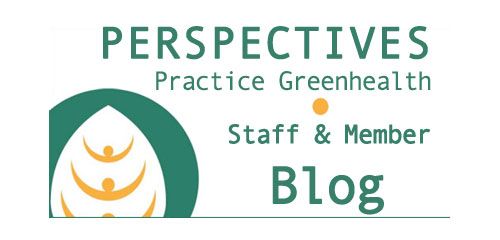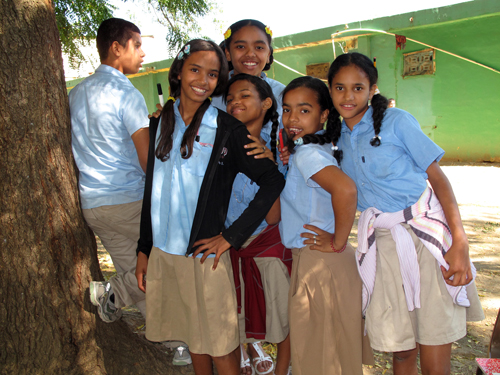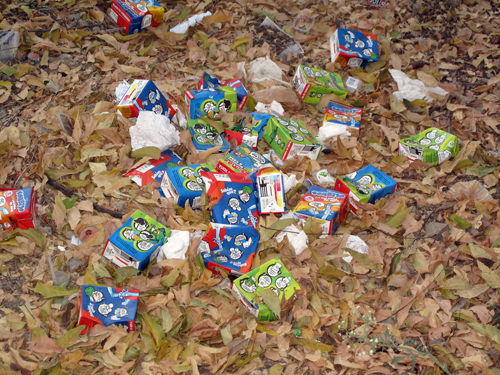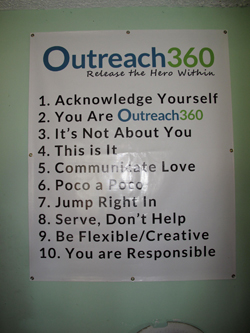Poco a Poco – Sharing Jaibon, Dominican Republic – Janet Brown

Two weeks ago, my daughter Franni and I (along with two other moms and their 8th grade girls) embarked on a volunteer trip to Jaibon, Dominican Republic through a not for profit— Outreach 360. We spent the week teaching English to children aged kindergarten through sixth grade and worked on a project associated with a boy’s orphanage that homed 22 amazing boys. The school principal and orphanage founder were one in the same – “La Tia” – the Aunt.

Students
I was able to connect this experience to my passion for health care sustainability by going online to identify the local hospital. I sent some emails and was able to identify a contact that was able to get a list of supplies that were in need. We all know, by now, the complexity around donation of equipment, materials and supplies to developing countries. We know that all too often, these “donations” are really garbage in disguise. (Scratching the Surface – October 2011)
Coincidentally, the Friday before embarking on the trip, I had a field trip to Practice Greenhealth Strategic Resource Network Member IMEC ‘s warehouse with Practice Greenhealth member Covenant Health System’s Green Team. I was already familiar with IMEC’s work and had learned about their responsible equipment and furniture donation program, through conversations with its founder, Tom Keefe. IMEC is very careful about controlling what and where supplies are sent. While hospitals are challenged to increase their recycling rates, donation of broken or even too technical, equipment can cause more harm than good. I was thrilled to be given a carry-on medical supply kit that was fully inventoried and neatly packaged so that I could take it with me to the Dominican Republic. I reviewed the contents and found a brand new, beautifully packaged stethoscope, gloves, gauze and other essentials. I transferred it into two large duffels, since I was informed by our group leader that boxes can delay customs. It was challenging to get the duffels to my contact, Jonny Emilio Marte. But I did make the connection and he transferred the supplies to the hospital’s principal, Braulio Reynoso Ventura and the administrator Jose Rodríguez.
While we were in the Dominican Republic to teach English and learn more about another culture, I was struck— there was virtually no waste collection. As waste was generated, it was dropped to the ground—wherever that happened to be. While the boys cleaned up the school yard and grounds every single morning before school, they transferred the plastics, juice boxes and other packaging and dumped them in the plantain field. The school children purchased sugary beverages, candy and chips during their “recreo” and dropped the waste to the ground as each treat was consumed. Recycling? Of course not— but here we were faced with a different challenge. There is no recycling or even regular waste collection. So what is the first step? What is the practical action for this scenario? The mom’s and I put our heads together and we came up with our small step. We gave Mario, our leader from Outreach 360 some money to buy five large waste barrels to place throughout the school yard. They would integrate waste collection education into the teaching (with a future round of volunteers) and identify a place to dump the waste, separately from the plantains. By teaching the children to put their waste in a receptacle instead of on the ground, we agreed it was the first “practical” step in making progress. We also felt the boys from the orphanage would very much appreciate collecting gathered waste, rather than picking it up from the ground. It felt good knowing we would make the boy’s daily chores a little lighter. They were up each day very early to work. On Saturdays they slept late— til 6. We certainly realized that creating our own private “landfill” was not the best case scenario, but there was no way to remove the waste on a regular basis. That would be next. So for now, getting the garbage into receptacles and then into a less public site, seemed logical.

Trash pick-up after Recreo
Janet Brown, EDAC
Director of Sustainable Operations
Practice Greenhealth

Outreach 360 Core Values
Join Practice Greenhealth
Practice Greenhealth is the health care sector’s go-to source for information, tools, data, resources, and expert technical support on sustainability initiatives that help hospitals and health systems meet their health, financial, and community goals.
